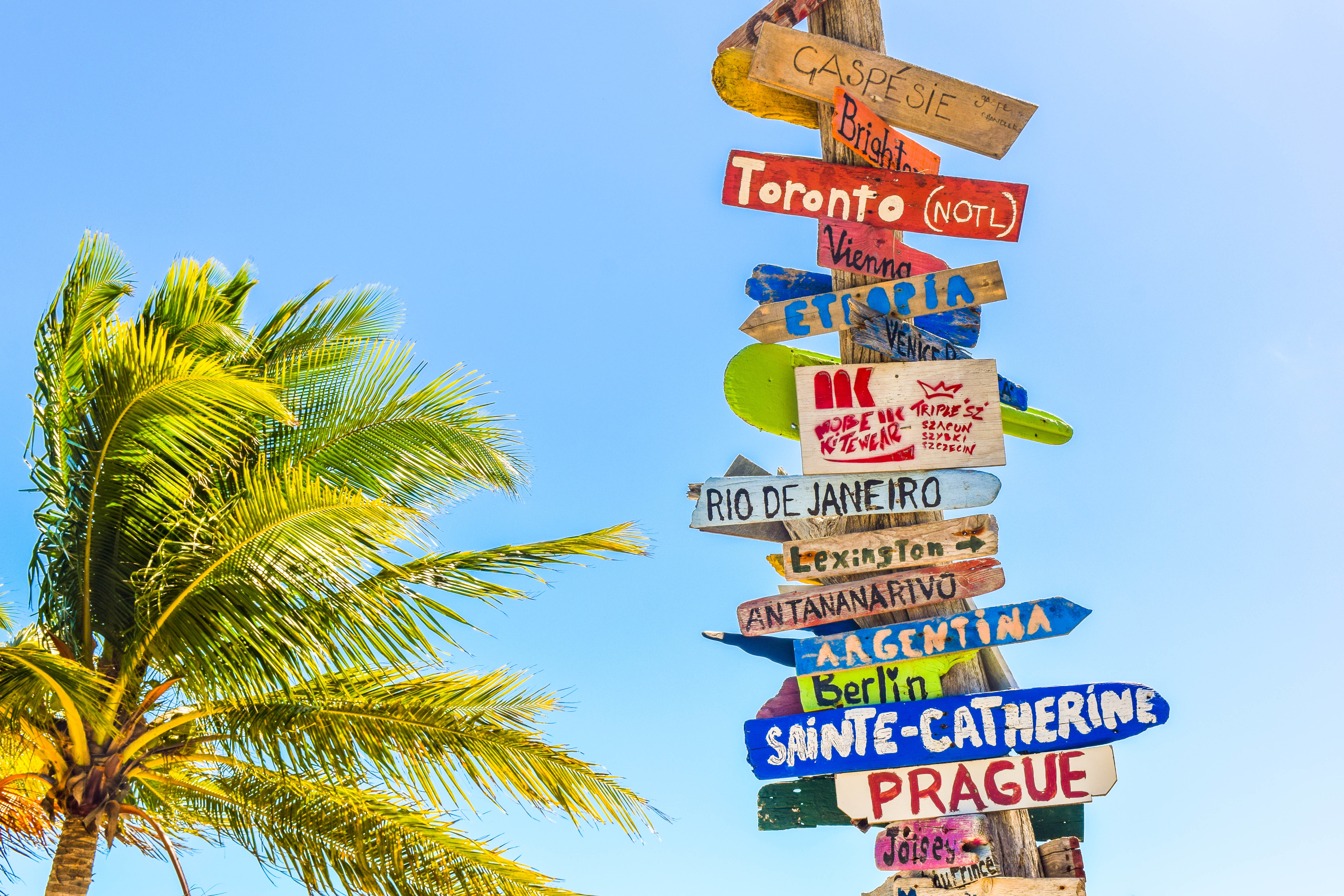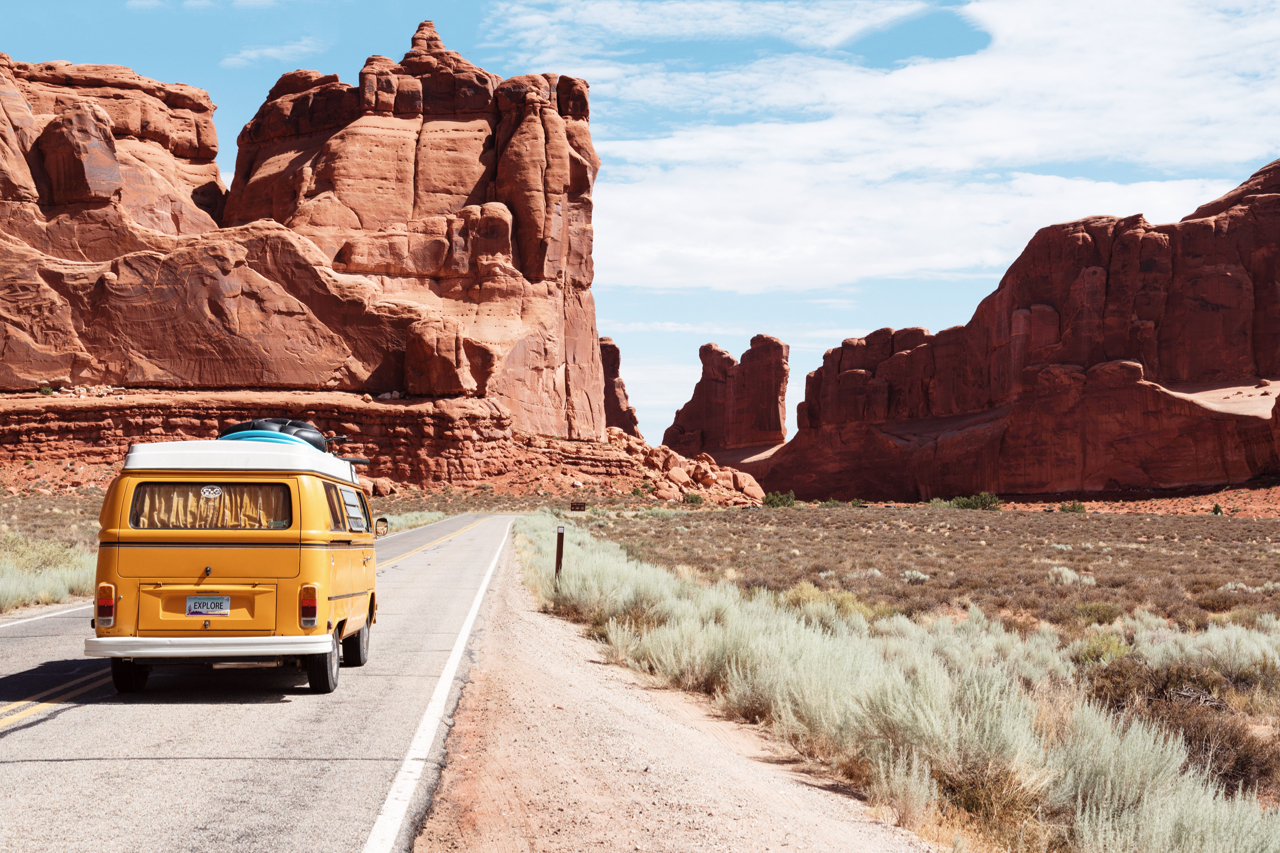There is a saying that travel broadens the mind, but there is increasing evidence that it is healthy for your mind, too.
If we are stressed or a little run down emotionally or mentally, friends may suggest we take a break and head off on holiday for a week or two.
And it has become a rite of passage for middle-class Westerners to ‘find themselves’ on a global backpacking holiday or ‘year out’ where they visit far-flung places.
But how does this need for distant travel and the stimulation it brings square with the environmental imperatives of the 21st century. Can you really justify the carbon pumped into the atmosphere by your self-help therapy trip to India?
In the past decade or so, experts have expanded their understanding of why travel makes us happy.
Psychologists who research the economics of happiness call it the ‘Easterlin paradox’ where money can lead to happiness but only up to a point and then the mind adapts.
Dr Thomas Gilovich, a Cornell University psychology professor, asked participants to report their happiness after making major purchases of goods or experiences in a study lasting more than 20 years. At first, the participants ranked their happiness with both kinds of purchases at about the same but over time, their satisfaction with material things went down and their satisfaction increased with the experiences they bought.
The study also showed that we get more happiness from looking forward to a travel experience in comparison to anticipating buying a new possession.
According to the latest Expedia Vacation Deprivation Study, an annual survey on American traveller behaviour and attitudes, 81% of people take holidays where a main goal is ‘mental wellness’.
And regular holidays have been shown to benefit psychological wellbeing. One US study followed 1,500 women over five years and found those who had holidays twice a year were significantly less likely to become tense, depressed or tired than women who had a break away once every two years. Those who travelled more often also reported being more satisfied in their marriages.
The Expedia study found that whether it was a long holiday (week or more) or a short one (two or three days), after a trip people liked themselves more, had more confidence in their ability to solve problems and felt more hopeful and outgoing.
Longer vacations seem to yield slightly better outcomes, with each positive result seeing a roughly 10% boost compared to a two or three-day trip.
Nisreene Atassi, global head of communications for Brand Expedia, said: “Bigger trips are great but even a quick break can significantly improve quality of life. Aim to schedule a staycation or add an extra day onto a holiday weekend in between longer trips to get the best of both worlds.
“A wellness-centric trip doesn’t have to mean a spa or yoga retreat, although those are popular options,” says Atassi. “For most of us, recharging simply means we need to disconnect and slow down. Whether it’s a family vacation or a solo escape, set rules about how often you’re allowed to check email and try not to overschedule your days.”
Margaret J King, of the Center for Cultural Studies and Analysis, in the US, has said this about the stress-relieving abilities of travel: “With a short list of activities each day, freed up from the complexities of ongoing projects and relationships, the mind can reset, as does the body, with stress relief the main outcome.”
But with environmentalism on the rise and a growing argument for reducing the amount of travel we do, how will this affect holidays that give us a ‘mental reset’.
The effect on the planet of increased travel is stark. One return flight from London to New York emits about 1.2 tonnes of carbon dioxide, calculated to be the same as a whole year of emissions for one person if the world is going to reduce CO2 output to sustainable levels by 2050.
Air travel also emits more pollution than just CO2. Water vapour at high levels forms thin clouds that have a warming effect, with vapour trails visibly blanketing the earth. So, air travel has more than twice the warming effect of the carbon dioxide alone.
One man who believes we should be travelling less frequently but making sure we get more out of the trips we do take is travel photography and holiday company founder Zach Houghton.
“It’s time that we push back against a narrative that proposes that we need to visit new places simply because we can,” says Zach.
“What the world needs right now isn’t necessarily more stamps in passports; it needs more individuals who understand the value that those experiences bring to their lives as well as the effects of the travel industry on the environment and on local populations.
“As a society, do we need to be traveling more? Do we need to be consuming as much as we do? Or can we encourage a new era of mindfulness around these topics? Can we encourage individuals to seek out meaningful experiences closer to home and only travel in instances where their comfort zones are stretched and their passions ignited?
“I have discovered the value in taking fewer, more impactful trips and trying to align a clear purpose with each.
“Rather than travel to destinations on impulse or for the sake of outdoing our peers, we must evaluate why we want to travel. Even though travel has become (and to a certain extent, has always been) a status symbol, it is up to us to treat with it with respect and consideration. And with the obvious and detrimental effects that travel has on climate change – tourism is responsible for nearly one-tenth of the world’s carbon emissions – my staunch belief is that we must limit the number of places we visit in 2019 and make sure that every boarding pass we acquire leads us toward intentional connections, meaningful contributions and experiences that make us come alive.
“Travel is about introducing ourselves to new experiences, cultures, and ideas. These experiences have the power to shape and teach us. The moment it becomes about stamps, photos, likes, or symbols of status, it’s time to reconsider our motives and think about exploring closer to home instead.”
And some believe you can achieve the same outcome of better mental health by winding down on a break without traveling to far-flung lands. The staycation – when you have a holiday close to where you live or even unwind at home – is in part due to getting away from the hassle of travel, but also because of the environmental impacts of globetrotting.

Photo by Dino Reichmuth on UnsplashAmerican clinical psychologist Dr Shari Dade says mini-breaks at home can be beneficial for mental health in a different way than a holiday away can.
She says: “Sometimes, we get caught up in planning a vacation that we often forget that we can de-stress through a staycation that is much more convenient and cost effective. This allows you to step away to reflect on what’s actually going on.”
So what can you do on a staycation at home? Here are a few ideas…
Visit family: We pack so much into our lives that spending time with relatives is hard. If you only see them once or twice a year, take more time to get to know them again.
Explore the community around you: It is true that we don’t visit the things on our doorstep, so go to that museum or park near you that you’ve never visited.
Read a book: Yes, an actual book, and not on screen. You will then remember why books boosted your imagination and well-being.
Ride a bike: Hire one or borrow one and get some fresh air and exercise in places near you that you barely know.
Turn your bathroom into a spa: Buy some smellies, light some candles, put on soft music, put some petals in your tub, get some fluffy towels ready and relax – not for 20 minutes but for a few hours.
Catch a film: Some people feel self-conscious going to a movie on their own. But go in the middle of the day when there are fewer people around and just enjoy the moment.
Go shopping on a weekday: We all know the weekend is mad busy for retail therapy, but go midweek and it is incredibly relaxing. Visit a town you rarely go to and have a nice lunch. Remember, the money you are saving on a holiday can be spent on clothes!
Sleep: Lie in and if you can’t, just lie on your bed and watch TV. It will surprise you how much you can snooze if you are relaxed.
Watch sport: Go to see a sport you’ve never watched before. It can be as stimulating as a cultural experience.
American film director Jennifer Lee once said: “Be fearless in the pursuit of what sets your soul on fire.” This search may take you halfway around the Earth, but equally you could find it in your own back yard.


